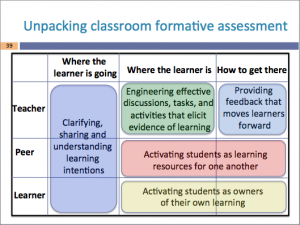Course #2 Technology supported assessment of and for learning in language education.

2023
Dates/Venues:
Cyprus
January 8 -13
September 17 – 22
Istanbul
January 15 – 20
September 24 – 29
Utrecht
July 16 – 21
Target Groups:
Teachers of Modern Languages in secondary, adult and vocational education
Course aims:
This course will familiarise language teachers with ways in which they can extend their repertoire of interventions and technology-mediated procedures to address issues related to testing and assessment in language education.
Delegates will develop practical skills and deepen their knowledge on:
– assessing student pre-knowledge, progress and learning results
– how assessment as/for learning activities can promote motivation and ownership of learning
– how digital tools can help to implement student-centred teaching & learning and promote self-regulating study skills
Methodology:
The course combines short introductions in the form of brief plenaries on the various related subtopics and methodologies with follow up exploration of concepts and procedures with the help of practical illustrations such as related (student) materials and (video) recordings of teacher/student interactions.
Key functionalities of digital tools that can facilitate specific assessment related activities will be presented. Course delegates subsequently explore the usefulness of one or more tools individually or in small groups depending on the perceived relevance and their needs.
At the end of the week delegates will share and discuss lesson activities with related assessment interventions which they created during the hands-on sessions.
To provide flexible access to course related tasks and resources a virtual learning environment (VLE) will be used. After the course concludes, participants will be able to access the VLE to promote follow-up communication and collaborative learning.
A pre-course, online questionnaire will be provided to assess pre-knowledge and further align course content and procedures to needs and interests.
Preparation:
You are advised to bring your subject book(s) and/or related digital materials (if available) to the course to be used when creating / customising materials and activities.
Day-to-day Course Topics
Day 1
- Meet & Greet / Introductions
- Questionnaire review / fine tuning expectations
- Cultural Event
Day 2
- Overview of course contents and structure in the course learning management system (LMS)
- Establishing common ground: Introduction to testing and assessment.
- Further exploring & revisiting key concepts using illustrative (video) practice recordings and teacher & learner materials.
- Briefing on the summative task (deadline: day 6)
Day 3
- Introduction to the formative assessment cycle with a focus on the role of the teacher
- Scaffolding procedures & materials
- Assessing Receptive Language Skills
The activities participants will engage in are targeted to provide insights that can help them design their own assessment tasks for specific language skills, task types and CEFR levels.
Day 4
- Assessing Productive Language Skills
- Introduction to the formative assessment cycle with a focus on the role of the learner
- Developing students’ inner feedback capability to improve peer and self assessment skills and procedures.
Day 5
- Implementing self-evaluation in the > 25 student language classroom with a focus on speaking skills. (Reflection on own practice, why this special focus on speaking skills and learner autonomy?)
- Introducing the ‘SpeakTeach’ Methodology, a self-evaluation procedure for students to improve self-regulated learning of their speaking skills.
- Introduction of the 5 principles of the methodology: adaptive for the learner: #1 Insert self-evaluation into a speaking task; #2 Tailor-made exercises; #3 Adaptive feedback and practical for the teacher: #4 Practical digital tools with opportunities for self-management; #5 tailored to your own teaching practice.
- Exploring practices to evaluate the application of the principles.
- Suggestions for potentially useful tools to support the (components of) methodology
- Working on the summative course task
Day 6
- Strategies and resources for further professional development
- Finishing teaching and learning materials
- Presenting and discussing lesson designs.
- Course wrap-up, evaluation and certification
Click here for the General TELLConsult Course Terms (registration procedures, costs, cancellation, etc…